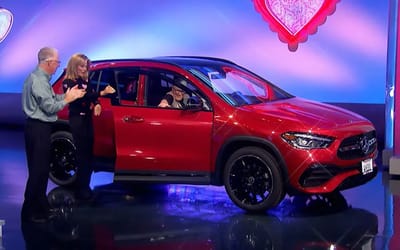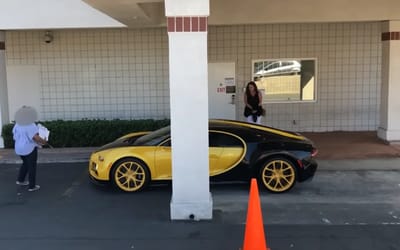Japanese car makers confirm they're all working on next-gen combustion engines
- Mazda, Subaru, and Toyota have joined hands
- They plan to make their own ‘signature’ next-gen combustion engines
- But they will also make efforts to reduce carbon emissions
Published on Jun 03, 2024 at 3:46 PM (UTC+4)
by Nalin Rawat
Last updated on Jun 04, 2024 at 4:18 PM (UTC+4)
Edited by
Tom Wood
Japanese carmakers Mazda, Subaru, and Toyota have come together to work on the next-generation combustion engines.
They say that life can’t be all battery and electricity-focused with no e-fuel fun.
According to the announcement, they plan to create next-gen powertrains that’ll work better with electric motors, batteries, and carbon-neutral fuels.
READ MORE! Bugatti showed off the sound of the new V16 engine its next hypercar will have
At the joint conference, the carmakers also committed to carbon neutrality.
They also confirmed that they will make efforts to decarbonize internal combustion engines by making them more compatible with hybridization.
“The inline four-cylinder engine has been refined over its long history,” said Toyota boss Koji Sato.
“The simple structure and highly flexible installation requirements have enabled it to support a diverse product line-up, from family cars to sports cars.
“We want to thoroughly refine the characteristics of [the engine] and develop them into powertrains for a diverse range of cars in the age of carbon neutrality.”
“We fully endorse the idea that internal combustion engines play a key role in the age of electrification,” said Masahiro Moto, Mazda CEO during the announcement.

Toyota has recently also created a new hydrogen engine that could be an absolute game changer.
It seems each brand will also focus on its own ‘signature’ engine.
Toyota will be working on two four-cylinders, Mazda working on rotary systems, and Subaru will be working on a hybrid boxer.
In an era, where most of the car industry has shifted to electric, the trio is currently trailing the rest of the industry.
Even when it comes to EV car models, the Japanese car makers are somewhat lacking.

However, the trio are now planning a ‘multi-pathway’ approach.
This involves the development of e-fuels, biofuels, liquid hydrogen, and other battery-based solutions.
“Achieving a carbon-neutral society is a challenge that must be undertaken by all of Japan’s industries and society as a whole,” added Atsuki Osaki, CEO of Subaru.
“As we continue to refine electrification technology, we will also enhance our horizontally opposed engines with an aim to use carbon-neutral fuels in the future.
“Moving forward, the three companies sharing the same aspiration will continue to advance the pursuit of sustainable excellence in Japanese car manufacturing.”
With a shared goal of reducing carbon emissions, the trio says these new engines will be more efficient and provide better performance.
DISCOVER SBX CARS: The global premium car auction platform powered by Supercar Blondie
Nalin started his career by working with various national newspapers in India. He has also worked as a writer/editor for many popular websites, while still pursuing his journalism and mass communication degree. Working as a digital nomad has allowed him to inform and educate through his work. When he is not writing, you can find him playing video games or travelling the mountains on his bike.




